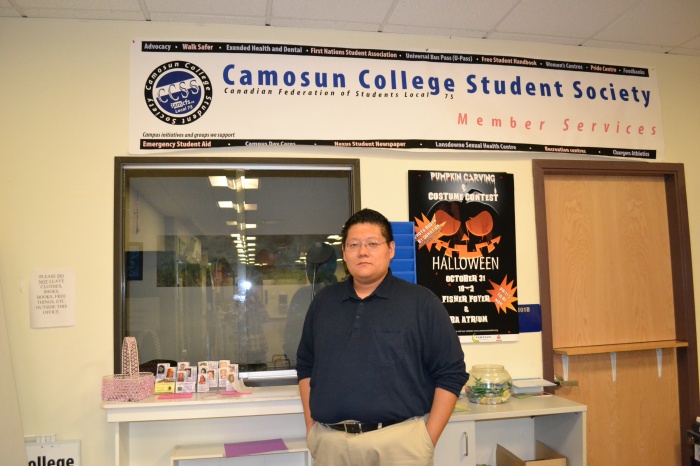The provincial government recently gave Camosun College and 19 other postsecondary institutions in BC a funding boost of $75,000 each for disabled-student access programs, but, according to the Camosun College Student Society Students with (dis)Abilities director Andy Chen, that won’t be nearly enough to tackle the barriers faced by disabled students on campus.
“Before postsecondary education enters the mind of a disabled student, they often need to contend with basic poverty issues,” says Chen. “Medications and treatments are expensive and often not covered by the Medical Services Plan. To access those treatments, they are forced to trade off basic necessities. Quite often, students with disabilities are forgoing food just to cover rent, because housing allowances are inadequate.”

The $1.5 million total funding is part of BC’s Skills for Jobs Blueprint and is being directed to pilot training programs at 20 institutions for learners with disabilities, guiding them into the BC Labour market.
“Our priority is to make sure relevant postsecondary education and training programs are accessible to all British Columbians,” said Minister of Advanced Education Amrik Virk in a press release. “This targeted funding will assist our postsecondary institutions to help persons with disabilities develop job skills that are aligned with BC’s labour market.”
Chen says that he wonders if the skills of students with disabilities are being commoditized for the benefit of the economy, without regard to each student’s individual stability.
“The government, as well as many community organizations, needs to change its practices to reflect less of a managerial responsibility for disabled student affairs,” he says. “There is room for more advocacy and social justice work, rather than short-term solutions. Faculty are often surprised by accommodation issues of disabled students, and the relationship that Camosun’s Disability Resource Centre plays in delivering that.”
But Virk says that there are many government-funded programs and services to make the postsecondary experience easier for students with disabilities.
“Special technology and services are helping individuals with cognitive disabilities gain the life and job skills they need to be successful in the workplace,” says Virk. “My ministry also provides funding to every public postsecondary institution for a disability services office that provides direct support and services for students with disabilities, such as tutoring and interpreters.”
While the provincial Disabilities Access Program has been established with good intention, the chronically neglected issue of getting disabled students to the point of postsecondary education remains, says Chen.
“How is a person with disabilities supposed to access postsecondary,” he says, “when many are living without the basic necessities?”

